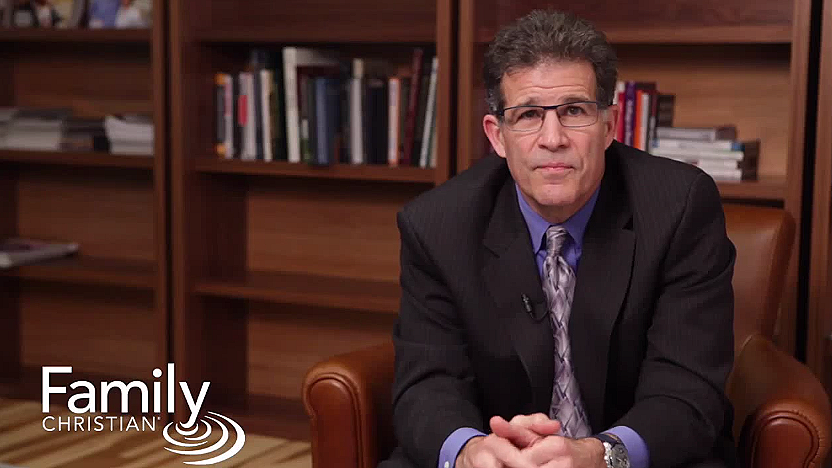Update (July 7):
After a failed attempt to sell the bankrupt Family Christian Stores to FCS Acquisition, a subsidiary of the chain’s parent company, the nation's largest Christian bookstore chain is trying again.
Family Christian now wants to put its future in the hands of creditors. It has asked a bankruptcy court to allow creditors to vote on a potential sale to FCS Acquisition.
MLive has details:
The proposed election would allow the company's creditors to cast votes in proportion to the amount and type of debt they are owed by Family Christian Stores, according to the petition.
With eight voting classes, each class must approve the plan by 51 percent of the votes cast and with 67 percent of the dollars represented by the votes.
The judge will hear the proposal on Friday, June 10.
Previously reported:
Once again, a bankruptcy court has denied the sale of America's largest chain of Christian retail stores.
CT previously reported how Family Christian Stores, after filing for bankruptcy, was planning to be purchased by FCS Acquisition, a subsidiary of the chain's parent company. The plan had "overwhelming support" from the official committee of Family Christian's unsecured creditors, its two secured lenders, an "ad hoc committee of consignment vendors holding approximately $14 million in consignment claims," and others who "desire [Family Christian's] business to continue as a going concern."
But this week, labeling the winning bidder an "indisputable insider" and the sale process "prolonged, controversial, and contested," bankruptcy judge John T. Gregg nixed the plan. He deemed it "flawed" due to the auction process and the objections of the second-highest bidder, a national liquidation firm whom Family Christian "solicited in order to maximize the value to their estates."
According to court documents reviewed by CT, the liquidation firm—a partnership between Gordon Brothers Retail Partners and Hilco Merchant Resources (GBH)—"alleges that the sale process was 'rigged' for the benefit of the winning bidder and insider." Gregg also noted the opposition of a consignment vendor who alleges "the structure of the proposed sale violates two fundamental tenets of the Bankruptcy Code, equality of distribution among similarly situated creditors, and the prohibition on the release of insider claims outside the context of a plan."
Gregg ruled that "although the auction was not as unfair as GBH insists, it was flawed." He noted:
- GBH has legal standing to object to the sale.
- The auction process "suffered from mistakes."
- Family Christian "failed to articulate a sound business justification for the sale to any of the bidders."
"Although the court cannot approve the Sale Motion as presented, the court is cognizant of the consensus that has developed in these cases," wrote Gregg. "As noted above, the court places great significance on the support from the Debtors’ major stakeholders, all of whom favor a sale of substantially all of the Debtors’ assets to Acquisition."
He concludes that Family Christian "may wish to reopen the auction and resume acceptance of bids from GBH, Acquisition, and any other qualified bidders," or "as an alternative to recommencing the auction, the Debtors may simply wish to file a plan of reorganization so as to avoid any allegations, or concerns from this court, that any proposed transaction fails to comport with the applicable provisions of the Bankruptcy Code."
Despite denying the sale, Gregg did praise Family Christian for its efforts:
Since the tumultuous beginning to their cases, the Debtors have diligently pursued consensual resolutions and compromises with various constituencies and stakeholders. On multiple occasions, the Committee, the United States Trustee, the Ad Hoc Consortium and the Lenders have remarked that the Debtors have been transparent and extremely forthcoming with information. The efforts of all parties to date have been impressive.
Publishers Weekly also notes the decision.
Family Christian filed for bankruptcy in February after it “carefully and prayerfully considered every option,” but pledged to avoid layoffs or store closures.
Despite 266 stores in 36 states bringing in $230 million in gross revenues in 2014, Family Christian owed more than $90 million. Sales of $305 million in 2008 had steadily shrunk to a projected $216 million this year.
Three years ago, Family Christian bought itself back from private equity owners, and in 2013 promised to donate all profits to serving widows and orphans around the world.
CT has closely followed the case, including the initial bankruptcy filing, a lawsuit filed by 27 Christian publishers, and Family Christian’s bid withdrawal. CT also dug into the biblical debate over bankruptcy and whether Family Christian was right to turn to the law for grace.









